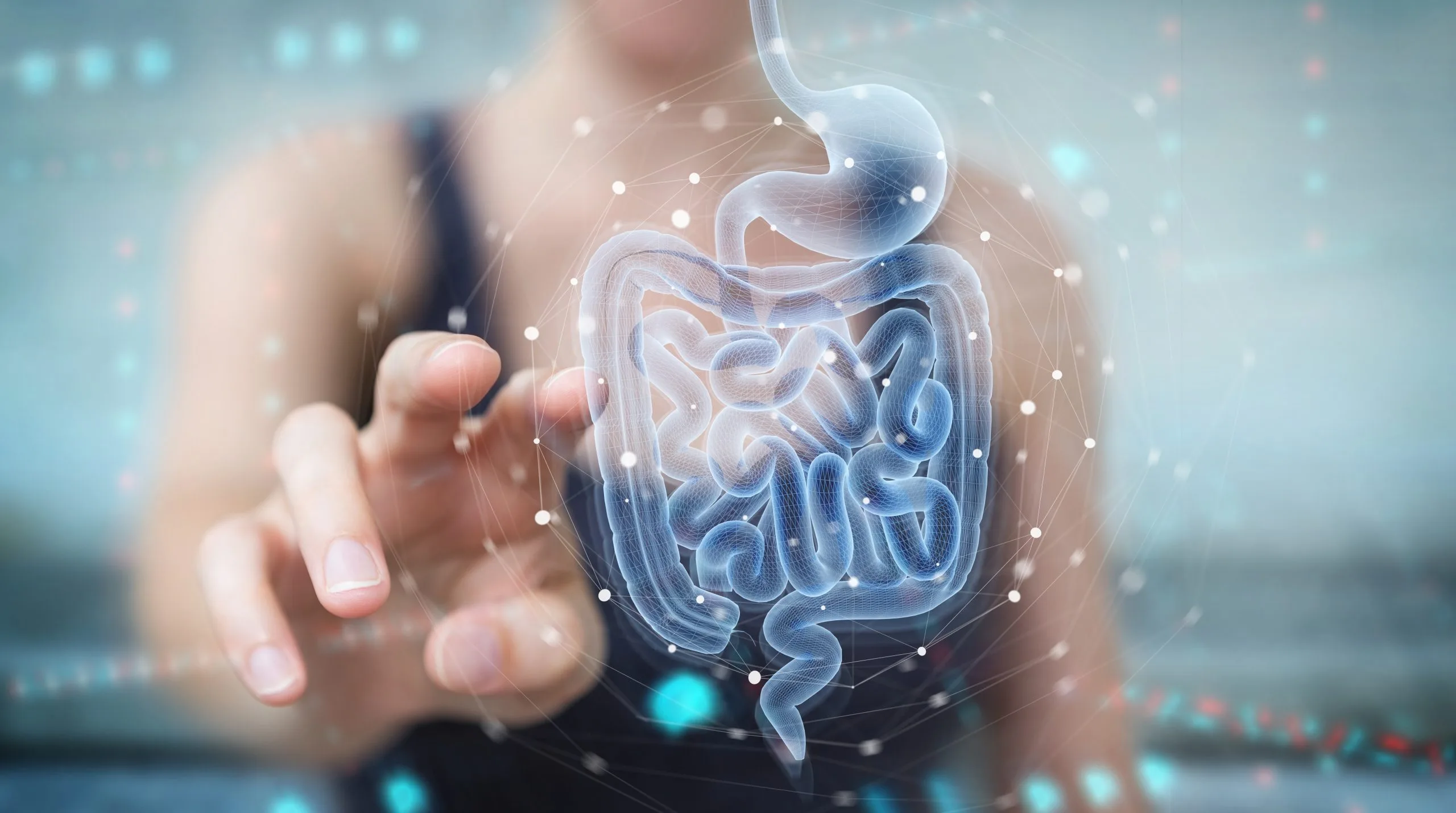There are a few reasons why we can’t get enough sleep at night. Stress. Fatigue. Sadness. That said, have you ever considered that your gut may be the reason behind your sleepless nights? We all know the effect that our guts can have on our body, ranging from our immune system to the hair on our head. So it should come as no surprise that your gut can also affect how much beauty sleep you get.
The gut-sleep connection
I’m sure you’ve heard about the gut-brain connection and how the gut has a direct line of communication with the brain. As the brain produces neurotransmitters that regulate everything from mood to sleep, it shouldn’t be surprising to know that your gut health can affect sleep and vice-versa.
Additionally, microbes in the gut produce sleep-regulating hormones such as melatonin, serotonin, dopamine, and Gamma-aminobutyric acid (GABA), and as a result, can have a direct effect on your sleep cycle.
How does the gut affect sleep?
High stress affects both sleep and gut

Photo by Ketut Subiyanto from Pexels
Poor sleep can increase stress levels, and high-stress levels can lead to poor sleep. Either way, high-stress levels mean that the stress hormone, cortisol, rises and this then creates issues for your gut.
“Increased stress can cause intestinal permeability issues—or something known as leaky gut—where food and toxins are able to pass through the intestine and into the bloodstream. This can lead to a host of issues including bloating, inflammation, stomach pains, food sensitivities, and changes to the gut microbiome,” says Dr. Ryan Barish, a functional lifestyle medicine physician with Henry Ford Health System.
Poor diet choices
Have you ever noticed how you always crave sugary foods when you’re sleep-deprived? Aside from the fact that these foods are only going to give you a temporary energy boost, before causing you to crash later on, processed foods rich in sugar and trans fats can also be horrible for your gut.
What does the research say?
- A 2019 study presented at the annual meeting of the Associated Professional Sleep Societies in 2019 found that a more diverse microbiome in the gut can help improve sleep quality and reduce rates of sleepiness.
- A 2018 study published in Frontiers in Psychiatry suggested that sleep issues can one’s microbiome, and changes to the microbiome may help or hurt sleep.

sdecoret/shutterstock
- A 2017 animal study published in Frontiers in Behavioural Neuroscience found that after feeding stressed-out rats prebiotics, the rats slept more soundly at night than rats who were fed a normal diet.
- For a 2017 Japanese study published in Beneficial Microbes, researchers focused on a group of students who were preparing to take an exam. The researchers divided the students into two groups. For eight weeks leading up to the exam, and three weeks later, one group drank a placebo beverage every day, while the other group drank a beverage containing probiotics. By the end of the study, the students who had drunk the probiotics drink had experienced higher-quality sleep than those from the placebo group.
How to support a healthy gut and sleep
1. Eat probiotic foods (or take a supplement)
Probiotics can help to support the bacteria in your gut, thus supporting your gut health, so it would be a good idea to include them in your diet. Moreover, a study found that probiotic supplementation helps to improve sleep quality.
In addition to taking a probiotic supplement, you can also eat more foods rich in probation, such as kimchi, pickles, kombucha, and yogurt.
2. Eat fiber-rich foods
Fiber isn’t just great for your gut health, but it can also improve your sleep.
In terms of your gut health, fiber can help your gut bacteria to thrive and this is always a good thing. Speaking about your sleep quality, a large study published in the American Journal of Clinical Nutrition found that people who enjoyed high-fiber diets experienced lower rates of insomnia when compared to those who consumed diets high in refined carbohydrates and sugars.
High-fiber foods include vegetables like artichokes, brussels sprouts, broccoli, as well as legumes, nuts, and seeds.

Photo by Kamaji Ogino from Pexels
3. Exercise
According to Johns Hopkins Medicine, exercise can help you fall asleep more quickly, and it can also improve sleep quality.
Moreover, exercise can also help to support your gut health by promoting the growth of bacteria that can actively support your overall health (1)
4. Manage your stress
Yes, we are living through one of the most stressful times in history, but it’s important to not let that affect your sleep – or your gut health.
There are plenty of ways you can reduce your stress levels. From yoga and mediating to reading and gardening, these hobbies can help you keep calm and carry on.

Photo by Benjamin Combs on Unsplash
5. Establish a sleep routine
Establishing a sleep routine can help you sleep better and in turn, can help to improve your gut health. If you’re struggling with getting proper sleep, then try this easy and effective nighttime routine courtesy of Dr. Yashica Khalawan.
- Eat dinner 3 hours before bedtime.
- 1 hour before bedtime, switch off all devices. Limit liquid intake to avoid bathroom trips.
- Listen to relaxing music and take a warm bath/shower. The cooling of body temperature helps signal sleep.
- Create an environment that supports sleep:
- Room temp 20 degrees Celsius
- Darken the room
- Sound machine to block out outside noise
- Invest in a mattress and pillow that support the alignment of the spine
- During the night, avoid checking the time as this increases anxiety about sleep.
- If you’re not asleep in 20min, get up and sit somewhere else dark and quiet. From there, do calm, non-stimulating activities i.e.: reading. Once drowsy, return to bed.

Photo by Ketut Subiyanto from Pexels
Want to know more?
We all know the importance that the gut plays in keeping us healthy, but could it also be the secret to longevity? Could your gut microbiome reveal the secret to how well you can age?



![women [longevity live]](https://longevitylive.com/wp-content/uploads/2020/01/photo-of-women-walking-down-the-street-1116984-100x100.jpg)










